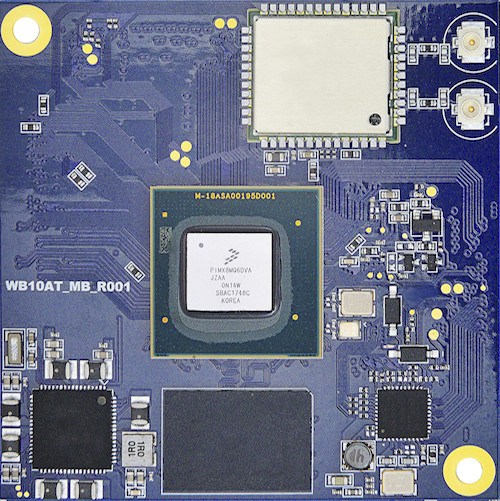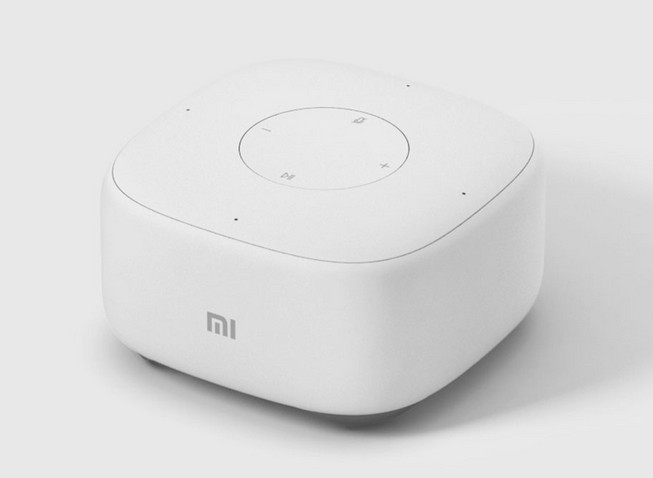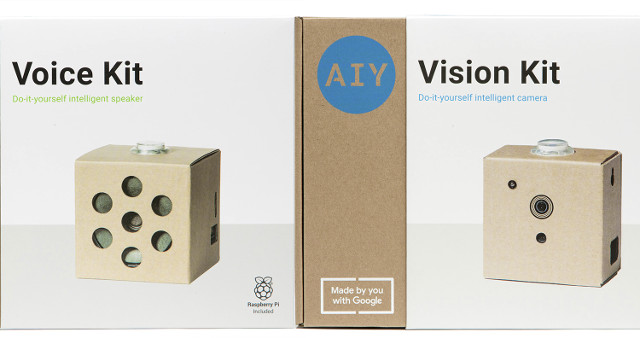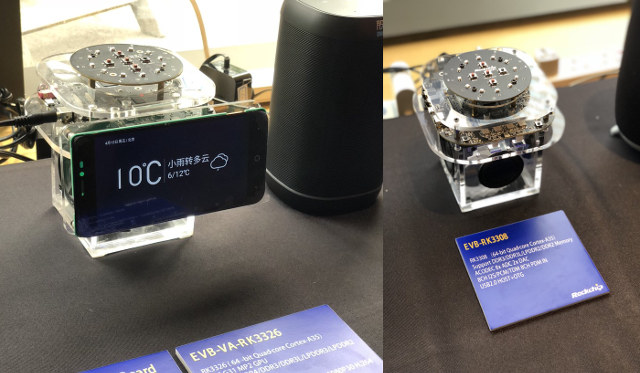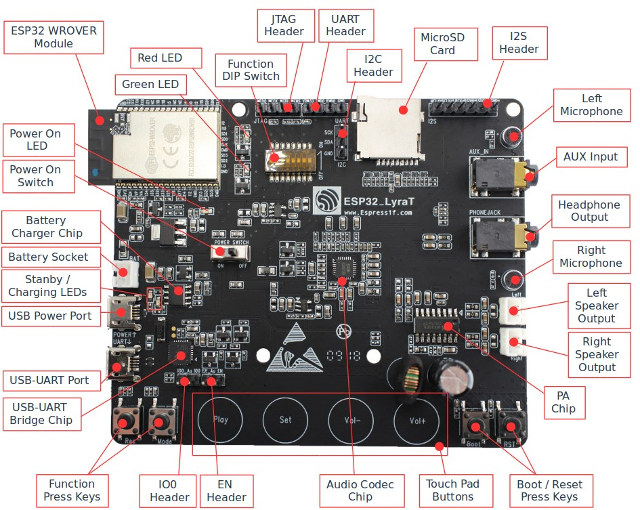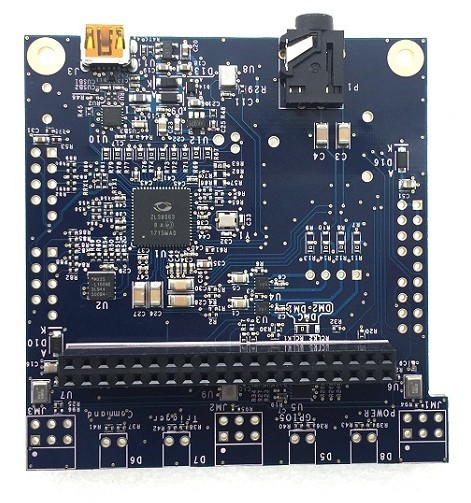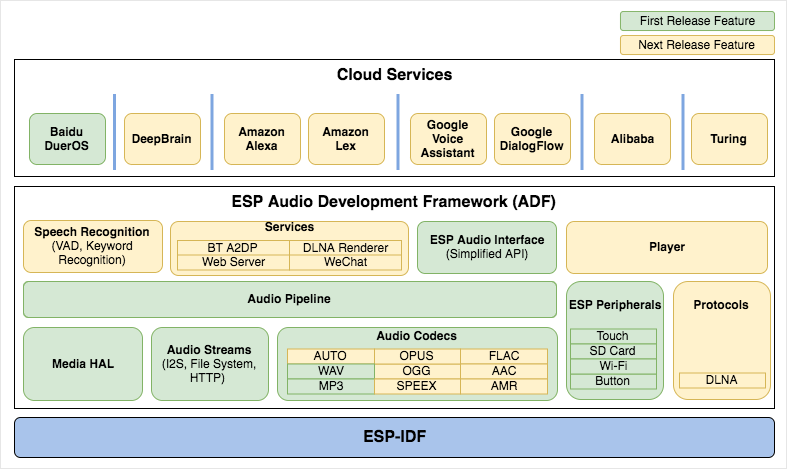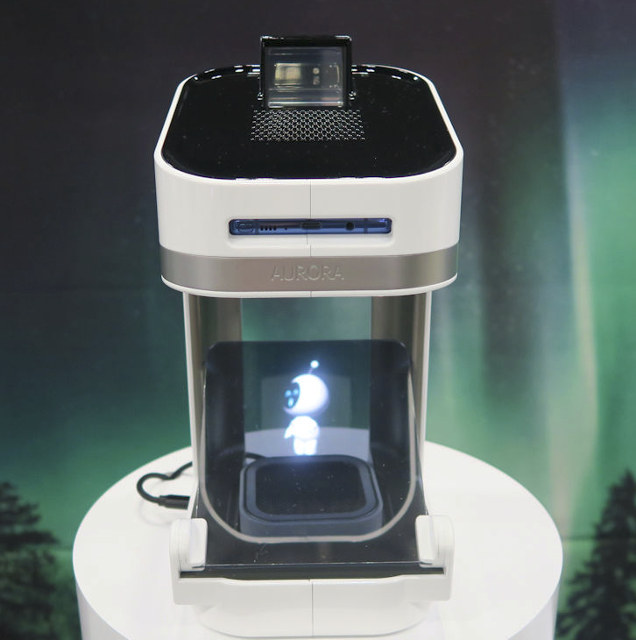Brillo Project was renamed to Android Things with the release of a developer preview back in December 2014, and the operating system enabling developers and companies to build and maintain Internet of Things devices at scale. The OS has now graduated so-to-speak with the release of Android Things 1.0 with long-term support for production devices, and this was to be expected as several Android Things devices were announced earlier this year. The new release adds supports for new system-on-modules (SoMs) based on the NXP i.MX8M, Qualcomm SDA212, Qualcomm SDA624, and MediaTek MT8516 SoCs. These modules are certified for production use with guaranteed long-term support for 3 years, and development hardware and reference designs for these SoMs will be available in the coming months. The Raspberry Pi 3 Model B and NXP i.MX7D boards and system-on-modules are still supported, but support for NXP i.MX6UL devices will be deprecated. Check out the […]
Xiaomi Mi AI Speaker Mini Smart Speaker is Selling for $27 (in China)
Smart speakers are becoming cheaper and cheaper, and in the US and some other countries, Amazon Echo Dot can be purchased for under $50. But Xiaomi has come up with an even cheaper model – for the Chinese market – with their Allwinner R16 based AI Speaker Mini that has just launched for 169 RMB, or about $27, in China. XIaomi Mi AI Speaker Mini specifications: SoC- Allwinner R16 quad core Cortex A7 processor @ 1.2 GHz System Memory / Storage – TBD Speaker 1.5″ 4Ω speaker Frequency Range – 140Hz – 20000Hz Speaker sensitivity – 78dB/m/W Maximum output power – 2W 4x Microphones Connectivity – 802.11 b/g/n WiFi, Bluetooth 4.1 with A2DP support Misc – Microphone on/off button, volume buttons, and play/pause button Power Supply – 5V/2A via micro USB port Dimensions – 90 x 90 x 50 mm Weight – ~210 grams The speaker ships with a power […]
Google AIY Projects Kits are Easier to Use in 2018 with Raspberry Pi Zero WH and All Accessories Included
Google launched two AIY Projects kits last year with a Voice Kit that took a Raspberry Pi 3 to create a smart speaker, and a Vision kit for hardware accelerated computer vision using a Raspberry Pi Zero W board. Google reports the kits are popular, especially for STEM education, but educators/parents had to buy the Raspberry Pi boards and micro SD cards themselves, as well as flash the firmware to the cards. So the company decided to redesign both kits to work with the Raspberry Pi Zero WH (RPi Zero W with headers), and include it inside the box with cable and pre-provisioned SD card, so kids can get started faster with experimentation with having to setup the kits. So that means we now have AIY Projects Voice Kit v2 with RPi Zero WH and micro SD card with firmware, as well as AIY Projects Vision Kit v1.1 with RPi Zero […]
Rockchip Reveals RK3308 & RK3326 Evaluation Boards for Smart Speakers and Smart Displays
Rockchip introduced RK3308 & Gemini quad core Cortex-A35 processors for smart AI solutions last month, and now the company has shared one more tweet about evaluation boards based on RK3308 and RK3329 (Gemini) processors for respectively smart speakers and smart displays. EVB-VA-RK3326 is a smart display evaluation platform powered by Rockchip RK3326 processor with four Cortex A35 core and a Mali-G31 MP2 GPU. It comes with a main board, a microphone array, some speaker, and a display. EVB-RK3308 looks very similar with instead feature a main board powered by RK3308 quad core Cortex A35 processor which supports DDR3/DDR3L/LPDDR2/DDR2 memory, and comes with an audio codec with 8x ADC/2x DAC, support for 8-channel I2S/TDM, and USB 2.0 host + OTG interface(s). That’s the only information we have since the company has not published any details on their website. If you represent a company and are interested in developing products based on […]
ESP32-LyraT Speech Recognition Board Sold for 22 Euros
Just last week, we wrote about Espressif ESP-ADF Audio development framework that can be used to develop smart speakers and other audio applications with ESP32 boards. There was only one board with documentation at the time however: ESP32-Lyra-T. One tiny problem: it was not for sale just yet, but today Olimex has announced the board is in stock, selling it for 22 Euros. Main features: Wireless module – ESP32-WROVER module with WiFi and Bluetooth LE Audio Many audio inputs – Wi-Fi, BT-audio, DLNA, 3.5mm audio Line-in 3.5mm headphone jack 2x microphones Speaker connectors Storage – micro SD slot Debugging – JTGA header, USB UART Misc – Touch sense buttons, function/boot/reset keys, DIP switch for configuration Power – 5V via micro USB port; battery header + charger chip You’ll find documentation on Espressif website (user guide) as well as on Github’s ESP-ADF (getting started guide). Jean-Luc Aufranc (CNXSoft)Jean-Luc started CNX Software in […]
Banana Pi BPI-AI-Voice is a $169 Speech Recognition Development Kit based on MicroSemi ZL38063
SinoVoIP has just launched BPI-AI-Voice development platform for speech recognition on Aliexpress for $169, and excluding the different PCB color, it is a clone of the official $299 Microsemi AcuEdge Development Kit for Amazon AVS, which is based on MicroSemi ZL38063 audio processor and comes with two microphones. BPI-AI-Voice key features: Audio Processor – MicroSemi ZL38063 Storage – U2 SPI flash to store ZL38063 firmware Audio 4x on-board digital microphones (AKU441) supporting a 2 microphone configuration for 180° and 360° audio pick-up. 2x low cost class D audio amplifier (NCP2820) Expansion Headers JMMA1 audio header for digital microphone, analog out, and 3 GPIOs JM1-4 digital microphone headers for off-board microphones 40-pin P2 header to connected to Raspberry Pi 3 (I2S, SPI and 8x GPIO used) Debugging – JAIB2/2 auto tuning headers, micro USB port. Power Supply – 5V via micro USB port Dimensions – 70 mm × 66 mm Temperature […]
Espressif ESP-ADF Audio Development Framework for ESP32 Supports Baidu DuerOS, and Soon Amazon Alexa, Google Assistant, etc…
Espressif Systems have been working on audio applications like Smart Speakers based on ESP32 WiSoC with hardware development kits like ESP32-LyraTD-MSC Audio Mic HDK, and I could test it with Baidu DuerOS using Mandarin language. However, at the time (February 2018), there was not much else that could be done with the hardware kit, since no corresponding ESP32 audio software development kit had been made available. This has now changes since Espressif has just released ESP-ADF Audio Development Framework on Github. The framework will support the development of audio applications for the Espressif Systems ESP32 chip such as: Music player or recorder handling MP3, AAC, WAV, OGG, AMR, SPEEX … audio formats Play music from network (HTTP), storage (SD card), Bluetooth A2DP/HFP Integration with Media services such as DLNA, Wechat, etc.. Internet Radio Voice recognition and integration with voice services such as Alexa, DuerOS, Google Assistant As we can see […]
Samsung Aurora Smart Speaker Prototype is Powered by a Smartphone, Features an Hologram-like Character
Samsung Electronics has showcased a smart / A.I. speaker prototype at SXSW 2018 trade show last month, that can be manufactured at low cost since it relies on a smartphone to provide a processor, microphone, and other equipment. The smart speaker also uses the smartphone’s screen to show an hologram to greet users. Meet Samsung “Aurora”. The smartphone is placed horizontally (blue above) in a slot in the upper part of the speaker, and a hologram-like character floats above the Bluetooth speaker included of the kit. The part on the top surface is an optical mechanism using the smartphone’s camera for image recognition. The smart speaker also charges the phone, but it’s unclear how you are supposed to answer phone calls once it is inserted in the speaker… The concept looks similar to Vinclu Gatebox which we covered in 2016, except it relies on a smartphone. Samsung is said to […]


